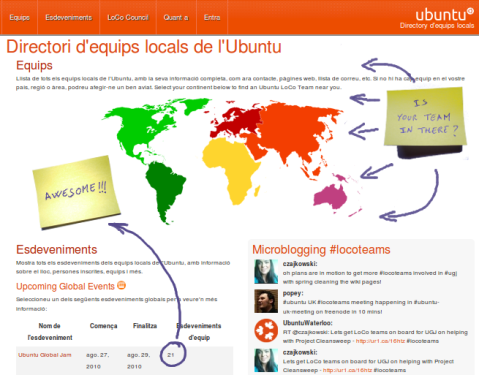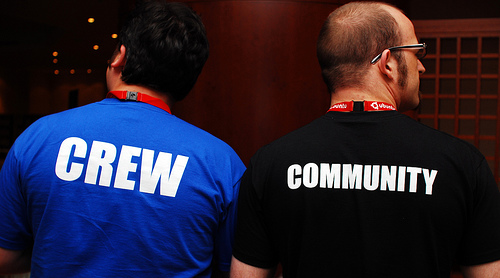![]()
Welcome to the Ubuntu Weekly Newsletter. This is Issue #207 for the week August 15th – August 21st, 2010 and is available here.
In this issue we cover:
- N-imal?
- Join the fun at the Ubuntu Global Jam
- Welcome New Ubuntu Members
- Ubuntu 10.04.1 LTS released
- 10.10.10.10.10…..
- Gestures with multitouch in Ubuntu 10.10
- Ubuntu Translations Interviews: Ricardo Pérez (Spanish Translation Team)
- Ubuntu Stats
- LoCo News
- Ubuntu One Technical Aspects
- Thankyou, Debian
- Planet KDE Update
- Beginners Team
- Ubuntu at the Creative Arts Charter School
- Getting Started with Ubuntu 10.04 Second Edition released
- UbuCon at Ohio LinuxFest
- In The Press
- In The Blogosphere
- Multi-touch Support Lands in Maverick
- Canonical Announces the Release of uTouch for Ubuntu OS
- Interviewing Mr. Gwibber (Ryan Paul)
- Geode Driver Update
- Puppy 5.1 codename Lucid is out- Now is compatible with Ubuntu 10.04 Lucid Lynx package
- Oracle puts OpenSolaris to rest
- KDE & GNOME cross-desktop development
- OpenLuna – An Open Source Project Aimed at Returning Humankind Back to the Moon
- Ohio LinuxFest Schedule
- Featured Podcasts
- Weekly Ubuntu Development Team Meetings
- Upcoming Meetings and Events
- Updates and Security
- And much much more!
- Amber Graner
- Liraz Siri
- Penelope Stowe
- Daniel Caleb
- Mike Holstein
- Jonathan Carter
- Lyz Krumbach
- And many others
This issue of The Ubuntu Weekly Newsletter is brought to you by:
If you have a story idea for the Weekly Newsletter, join the Ubuntu News Team mailing list and submit it. Ideas can also be added to the wiki!
 Except where otherwise noted, content in this issue is licensed under a Creative Commons Attribution 3.0 License BY SA Creative Commons License
Except where otherwise noted, content in this issue is licensed under a Creative Commons Attribution 3.0 License BY SA Creative Commons License

